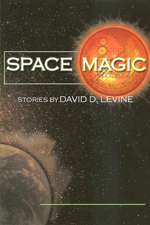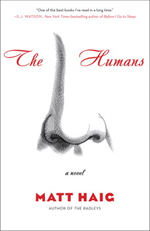
 Rebellion (Star Force #3)
Rebellion (Star Force #3)
By B.V. Larson, Performed by Mark Boyett
Publisher: Brilliance Audio
[UNABRIDGED] – 12 hours
Themes: / aliens / military sci-fi / fighting bugs / machines /
Publisher summary:
Rebellion is the turning point in the great interstellar war between all living creatures and the machines. Star Force is on the side of the machines – but for how long? In the third book of the Star Force series, Kyle Riggs learns just what kind of war Earth is caught up in. At the mercy of the Macros, his marines fight against new alien races, big and small. They battle the innocent and the vile alike, until their situation becomes grim.
Rebellion is the third novel in B. V. Larson’s Star Force series starring computer science professor turned interstellar marine Kyle Riggs. It stands on its own better than the previous novel, Extinction, but I would still recommend reading the previous books first as the plot throughout the series thus far has been mostly linear. In Rebellion, Larson takes his Star Force formula, throws in a couple new atomic grenades, and keeps blasting right along with the story of humanity’s fight against alien machines known as the Macros.
Given the title, it should come as no surprise that in this novel Kyle Riggs leads the battered remnants of his Star Force marines in a rebellion against their Macro masters. His reasons for this are many, but the decision point comes when he discovers that, while the Macros are scrupulous in abiding by the letter of their agreements, they have no compunction in their networked silica minds against taking advantage of every loophole in an agreement. In this case, they use Riggs’s nanotized marines to attack a race that had failed to include a prohibition against indirect assault using mercenaries in their peace treaty. Riggs concludes that the Macros will employ similar tactics against Earth and the near future and determines that it is better to restart the war now. On his own terms. With only five thousand men. With no way of alerting Earth.
Draw your own conclusions about Kyle Riggs’s big-picture tactical planning capabilities but, as in the previous novels, it is hard to fault his individual decisions in the heat of the moment. Indeed, I’m starting to wonder if Larson intends his hero to be an object lesson in the difficulty of making good choices under stress.
The structure of the Macro / Nano division continues to frustrate me. I’m beginning to accept that Nanos can not simply swarm a Macro and take it apart, though this acceptance is less for any logical reason than just because it continues to not happen, even though there are specific scenes of destroyed Macros being disassembled by Nanos and reprocessed. Perhaps my worst gripe along these lines for Rebellion is the revelation that Macro ships are difficult to pilot because the cockpits are built for pilots with seven arms. Now, I’ll accept that there is some sort of fundamental programming element that requires all Macros to be large, but when their entire command structure is built on networked parallel processing, why aren’t the ships just built into that network? There is simply no reason for the Macros to have physical ship controls, any more than there is a need for their ships to have pressurized compartments.
All complaints aside, I was pleasantly surprised to discover that Rebellion features more, and far more interesting, revelations about the Star Force universe than its predecessor. The best of these are the emergence of a new machine intelligence and Sandra finally coming into her own as a character. This new intelligence starts off as little more than another of the nanobot “brain boxes” that Riggs uses in every aspect of his military. Riggs names the over-achieving brain box Marvin, in what I can only hope is an unacknowledged tip of the hat to The Hitchhiker’s Guide to the Galaxy, and the interactions between Marvin and the human characters are probably the best part of this novel. As for Sandra, she spends half the novel in a coma, then wakes up just in time to reprise her roll as Riggs’s shallow, hot-tempered girlfriend. Literally her first action after waking up is to punch another woman for kissing Riggs in a moment of desperation. Fortunately, Sandra seems to blow most of her daft behavior allocation in that first moment as, with the help of some sentient microbes who have been tortured into assisting Starforce, she quickly evolves into a strong, self-motivated character.
Development of characters other than Kyle Riggs has been a weakness for this series from the beginning, and Rebellion does little to change this. Other than the introduction of Marvin and the growth in Sandra, the only supporting characters to see a change are Jasmine, who develops a crush on Riggs, and Kwan, who gets a girlfriend and learns a few new English idioms. But you don’t read Star Force novels for character development or fully coherent plot. If you are a fan of fast-paced science fiction featuring liberal quantities of bloody, laser-scorched human versus robot combat, Rebellion will quench your thirst for action.
The audiobook narrated by Mark Boyett has the usual quality of production and performance. Three books into the series, I do have to admit that I am starting to get annoyed by the accents of characters other than Kyle Riggs, as it seems that any human character who merits a name also has an accent. Mark Boyett does a fine job with his reading, and I do appreciate that B. V. Larson is attempting to show the global nature of Star Force, but the continual shifting of accents and genders from a single male reader grows tiresome after about six hours.
Posted by Andrew Linke

 Space Magic
Space Magic The Elephant Vanishes: Stories
The Elephant Vanishes: Stories Rebellion (Star Force #3)
Rebellion (Star Force #3) A Wild Sheep Chase: A Novel
A Wild Sheep Chase: A Novel Book of Seven Hands (Foreworld SideQuest)
Book of Seven Hands (Foreworld SideQuest) The Humans
The Humans